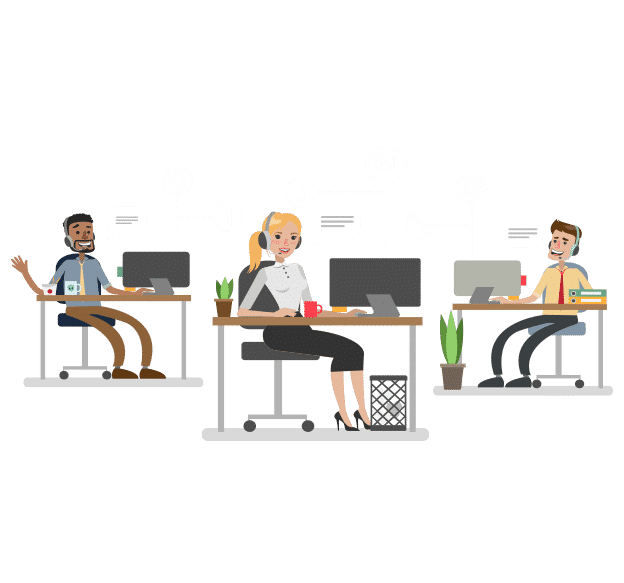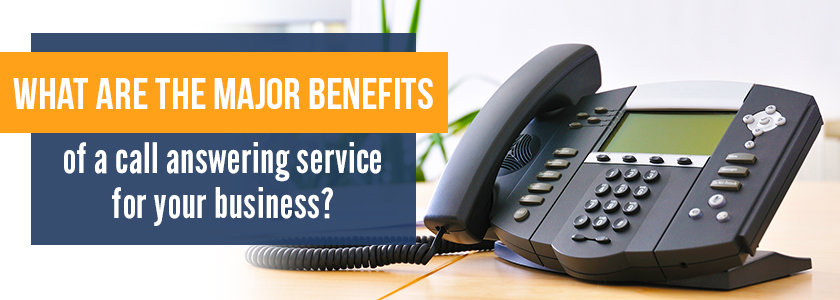All Categories
Featured
Table of Contents
- – What Is The Best 10 Sectors That Can Benefits F...
- – Who Is The Best Call Service: 24/7 Live Phone ...
- – How Much Should I Pay For 9 Best Answering Ser...
- – When Are The Best A Guide To Using Automated ...
- – How Is The Best What Is An Answering Service?...
- – A Better Answering Services 101: Everything ...
What Is The Best 10 Sectors That Can Benefits From A Phone Answering Service Product?
This device and its successors were designed by Sava Jacobson, an electrical engineer with a personal consulting company. While early answering devices used magnetic tape technology, many contemporary equipment utilizes strong state memory storage; some devices utilize a combination of both, with a solid-state circuit for the outgoing message and a cassette for the inbound messages.
"toll saving" listed below) (phone call answering). This works if the owner is screening calls and does not want to speak to all callers. In any case after going, the calling party must be notified about the call having actually been answered (most of the times this begins the charging), either by some remark of the operator, or by some welcoming message of the TAD, or addressed to non-human callers (e.
This holds particularly for the Little bits with digitally kept greeting messages or for earlier makers (before the increase of microcassettes) with a special endless loop tape, different from a 2nd cassette, devoted to recording. There have been answer-only devices without any recording capabilities, where the greeting message had to inform callers of a state of existing unattainability, or e (telephone answering service).
Who Is The Best Call Service: 24/7 Live Phone Answering Services For Small ... Provider

about accessibility hours. In taping Littles the greeting typically includes an invite to leave a message "after the beep". An answering device that uses a microcassette to tape messages On a dual-cassette answerphone, there is an outgoing cassette, which after the defined number of rings plays a pre-recorded message to the caller.

Single-cassette voice mail contain the outbound message at the start of the tape and incoming messages on the staying area. They first play the statement, then fast-forward to the next available space for recording, then record the caller's message. If there are many previous messages, fast-forwarding through them can cause a considerable delay.
This beep is frequently referred to in the welcoming message, requesting that the caller leave a message "after the beep". TADs with digital storage for the taped messages do not show this hold-up, naturally. A little might provide a remote control facility, whereby the answerphone owner can sound the home number and, by entering a code on the remote telephone's keypad, can listen to tape-recorded messages, or erase them, even when away from house.
How Much Should I Pay For 9 Best Answering Service Providers For 2023 [Reviewed]?

Thus the maker increases the number of rings after which it responds to the call (generally by 2, resulting in four rings), if no unread messages are presently kept, however responses after the set variety of rings (typically two) if there are unread messages. This permits the owner to discover whether there are messages waiting; if there are none, the owner can hang up the phone on the, e.
Some machines likewise permit themselves to be from another location triggered, if they have been turned off, by calling and letting the phone ring a specific large number of times (usually 10-15). Some provider desert calls already after a smaller number of rings, making remote activation impossible. In the early days of Littles an unique transmitter for DTMF tones (dual-tone multi-frequency signalling) was regionally required for push-button control, since the formerly employed pulse dialling is not apt to communicate suitable signalling along an active connection, and the dual-tone multi-frequency signalling was carried out stepwise.
Any incoming call is not recognizable with regard to these properties in advance of going "off hook" by the terminal devices. So after going off hook the calls must be changed to proper gadgets and only the voice-type is immediately accessible to a human, however possibly, however need to be routed to a LITTLE BIT (e.
When Are The Best A Guide To Using Automated Answering Systems Deals
What if I told you that you do not need to really choose up your device when addressing a consumer call? Another person will. So hassle-free, best? Addressing call does not need someone to be on the other end of the line. Effective automated phone systems can do the technique just as efficiently as a live representative and sometimes even better.
An automated answering service or interactive voice action system is a phone system that communicates with callers without a live individual on the line - phone answering service. When companies use this innovation, consumers can get the response to a question about your company simply by utilizing interactions established on a pre-programmed call circulation.
Although live operators upgrade the client service experience, numerous calls do not require human interaction. An easy taped message or guidelines on how a customer can retrieve a piece of info typically solves a caller's instant requirement - professional phone answering service. Automated answering services are a simple and efficient method to direct inbound calls to the best person.
How Is The Best What Is An Answering Service? Company
Notification that when you call a business, either for assistance or item query, the very first thing you will hear is a pre-recorded voice welcoming and a series of choices like press 1 for client service, press 2 for questions, and so on. The pre-recorded choices branch out to other choices depending upon the consumer's choice.
The phone tree system helps direct callers to the ideal individual or department using the keypad on a smart phone. In some circumstances, callers can use their voices. It deserves keeping in mind that auto-attendant alternatives aren't limited to the 10 numbers on a phone's keypad. As soon as the caller has actually chosen their very first choice, you can design a multi-level auto-attendant that utilizes sub-menus to direct the caller to the right kind of help.
The caller does not have to communicate with a person if the auto-attendant phone system can handle their concern. The automated service can route callers to a worker if they reach a "dead end" and need assistance from a live agent. It is expensive to hire an operator or executive assistant.
A Better Answering Services 101: Everything You Need To Know ...?
Automated answering services, on the other hand, are substantially more economical and provide significant expense savings at an average of $200-$420/month. Even if you don't have dedicated staff to deal with call routing and management, an automated answering service improves efficiency by enabling your team to focus on their strengths so they can more efficiently spend their time on the phone.
A sales lead routed to customer care is a lost shot. If a customer who has product concerns reaches the incorrect department or gets incomplete answers from well-meaning staff members who are less trained to manage a specific type of concern, it can be a reason for frustration and dissatisfaction. An automated answering system can decrease the variety of misrouted calls, therefore helping your employees make better usage of their phone time while freeing up time in their calendar for other jobs.
With Automated Answering Systems, you can develop a customized experience for both your staff and your callers. Make a recording of your primary greeting, and just upgrade it regularly to show what is going on in your organization. You can create as numerous departments or menu choices as you want.
Table of Contents
- – What Is The Best 10 Sectors That Can Benefits F...
- – Who Is The Best Call Service: 24/7 Live Phone ...
- – How Much Should I Pay For 9 Best Answering Ser...
- – When Are The Best A Guide To Using Automated ...
- – How Is The Best What Is An Answering Service?...
- – A Better Answering Services 101: Everything ...
Latest Posts
Top Custom Phone Answering – Adelaide
Detailed Hospitality Answering Service – Cairns
Cheap Bilingual Answering Service
More
Latest Posts
Top Custom Phone Answering – Adelaide
Detailed Hospitality Answering Service – Cairns
Cheap Bilingual Answering Service